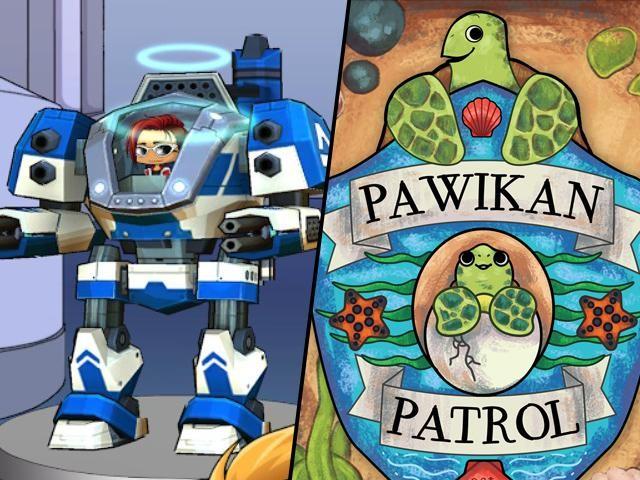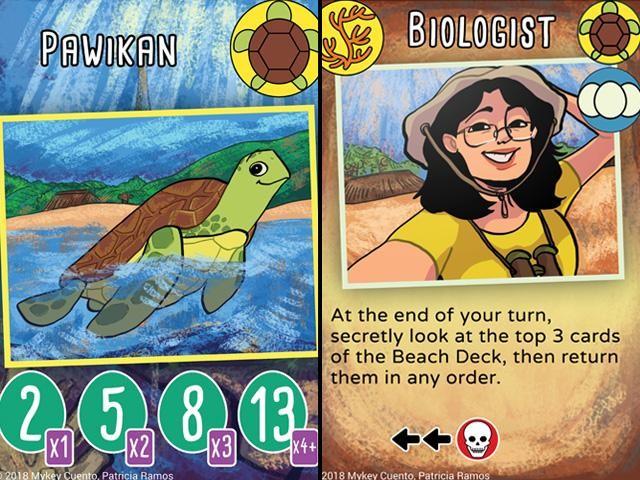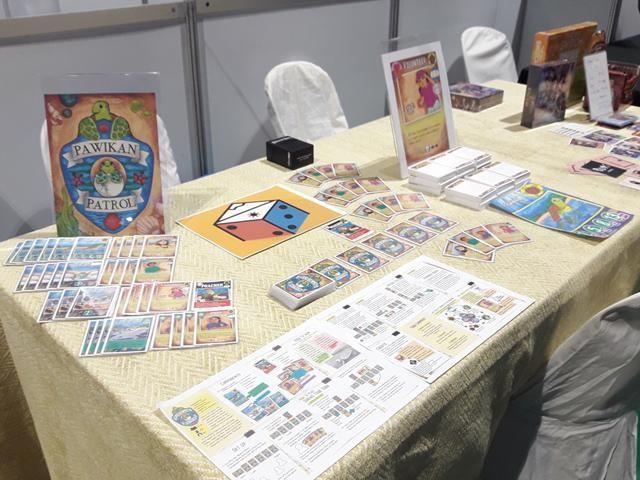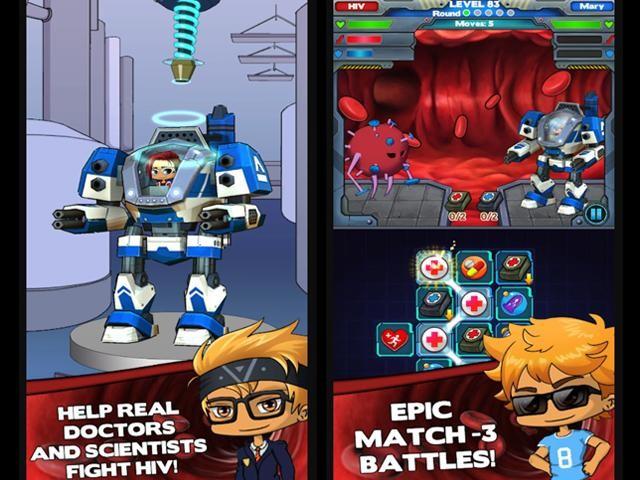Saving pawikan and fighting HIV: 2 games that advocate positive change
Games are no longer simply a race for the highest score. They now tell stories, educate us about important yet often ignored truths, and even advocate positive change in the world.
Below are two such games.

1. Pawikan Patrol
“Pawikan Patrol” is a card game about saving endangered sea turtles (pawikan) and their nests before a poacher can harm them. According to game designer Mykey Cuento a.k.a “The Tabletop Traveler,” it involves “sending characters representing different sectors of society to the beach to track the creatures,” clean up beach garbage, and mislead the poacher.
Game mechanics simulate the “sea turtle conservation efforts being done in Bataan and La Union, where trained volunteers and workers follow the tracks on the sand and carefully sift through it in search of eggs that will be collected and brought to the safety of an enclosed hatchery,” Cuento says.

Before becoming a game designer, Cuento took on different jobs in the non-profit sector. His volunteer activities at the Pawikan Conservation Center in Morong, Bataan inspired him to design a tabletop game that will let people experience “the adventure and excitement in discovering sea turtle nests as well as the fulfillment in safely releasing the hatchlings into the wild.”
Cuento eventually volunteered at Coastal Underwater Resource Management Actions (CURMA), a marine turtle conservation program in San Juan, La Union, where he met the real-life “Pawikan Patrol,” a group of people living in coastal communities who helping CURMA protect sea turtles. To honor these unsung heroes, Cuento decided to name his game after them.
Cuento stresses the importance of pawikan: “They are a keystone species that make the fishing and tourism industries possible in coastal areas: they cultivate the seagrass and eat the sea sponges that damage coral reefs, the breeding ground of fish; they also consume the jellyfish that would otherwise overpopulate the beach.”
Unfortunately, people have become indifferent. There are poachers who continue to hunt pawikan, as others pollute the beach, rendering them unsuitable and even hazardous for marine wildlife.

Helping Cuento create the game is Patricia Ramos, who is responsible for “Pawikan Patrol’s” lovely art. She is an artist who previously wrote and illustrated her own book, “Ang Alamat ni Niña Gigantes.”
“I just needed art that could properly evoke the experience that I wanted to share with the people who will play the game,” said Cuento. “I knew right away that her art style was perfect for the game: soft, rounded features and bright colors that children would be attracted to.”
Visit the official “Pawikan Patrol” Facebook page for more information
2. Battle in the Blood
Match-3 puzzle and turn-based combat mobile game “Battle in the Blood” is the product of a collaboration between Liverpool School of Tropical Medicine (LSTM) and the University of the Philippines.
Players battle anthropomorphic HIV, bacteria, co-infections, and cancer cells across 90 levels. Along the way, they also witness the stories of the eight individuals diagnosed with HIV they are helping.
The Philippines has one of the fastest growing number of HIV infections globally.
“Cases are forecast to triple in the next 10 years with a majority of new infections among 15 to 24-year olds. Within this age group, transmission rates are high, diagnosis is often delayed, and linkage to care and treatment is poor among those found to be infected,” said LSTM Training Materials Developer Charlotte Hemingway, who added “interventions in the health systems as well as in health promotion that are suited to adolescents and young adults” are necessary to slow the growing epidemic.
This is where “Battle in the Blood” comes in.
“The game aims to influence social norms, knowledge and attitude surrounding HIV/AIDs; to challenge misconceptions and communicate key messages such as: HIV can affect anyone whether you are male, female, gay or straight, and that you can live a long and fulfilling life after a positive diagnosis thanks to treatment,” explained Hemingway, who hopes the game will “improve the uptake of HIV testing and treatment services by changing the conversation around HIV.”
She added: “Increased online connectivity, a growing economy, and prevalent mobile device use has changed the way people spend their time and socialize. This change has generated new possibilities for the public health sector to deliver targeted health messages. Mobile games in particular offer a promising platform to address the knowledge gaps, perceptions, and self-stigma that deter young key populations from accessing health services.”
The developers’ hard work is paying off. “Through interviews with ‘Battle in the Blood’ users, we have heard how the game is triggering important conversations within friendship groups and among work colleagues, and helping to generate the much-needed social pressure to encourage individuals to know their HIV status and access treatment if needed,” said Hemingway.

UP Manila’s Dr. Emmanuel Baja had long wanted to develop a game that addressed the rising HIV epidemic among Filipino youths.
“UP had the initial idea, in-depth knowledge of the public health challenge and context, and LSTM had the expertise in games for health design, development and evaluation, as well as expertise in designing intervention to improve the uptake of HIV testing and treatment services,” said Hemingway. The game “brought together experts in clinical practice, epidemiology, qualitative research, psychology, and game development from the UK and Philippines.”
The completely free “Battle in the Blood” comes with no in-app purchases. It is available on the App Store and Google Play.
— LA, GMA News



